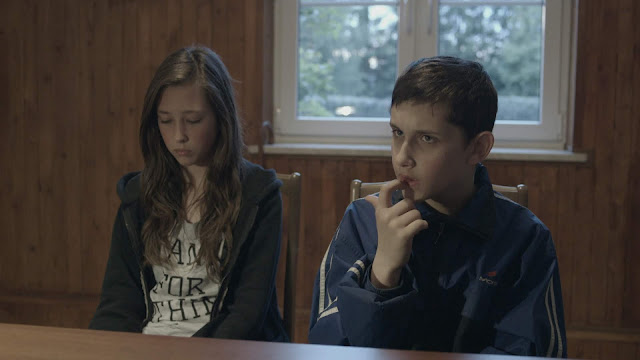Review | Communion | 2019
Anna Zamecka's Communion is a verité-style documentary that follows a Polish family as they prepare for their autistic 13-year-old son's church confirmation. The title serves a dual purpose, literally referring to young Nikodem's Holy Communion, but also ironically to the communal relations of the family in question, which is falling apart before our eyes.
As her parents fight and begin divorce proceedings, 14-year-old Ola Kaczanowska essentially becomes the family's primary caretaker, helping prepare Nikodem for his communion while trying to hold her own life together while everything else is seemingly falling apart. Zamecka's camera follows the Kaczanowski through their crumbling lives up to Nikodem's communion in what becomes an almost unbearable of assault of miserablism without any apparent form or function.The problem is that Communion has very little to say and offers no point of view. The slice-of-life aesthetic that worked so well in other verité-style docs like Hale County This Morning, This Evening, Distant Constellation, and Quest becomes something of a liability here. It feels as if we're intruding on someone's personal life, and that Zamecka is filming things we were never meant to see. Communion is a deeply uncomfortable experience, as if we're watching the disillusion of a family in real time. It offers no POV, no hope, no real insight into society or family dynamics. It simply...exists.
That's what sets Communion apart from its verité brethren; whereas the aforementioned films explore specific milieus and how they are affected (or ignored) by the world around them, Communion wallows in the misery of its subjects for no other purpose than to watch the family melt down. It's a work of painful voyeurism, never questioning or investigating to source of its subjects' strife, content to merely observe with a dispassionate eye. One can't help but wonder why Zamecka doesn't dig deeper into what's going on here. Ola tries to take responsibility for her brother, but the pressure is often too much. We watch her cry and scream in frustration, but to what end? What purpose does all this serve? The film offers nothing in return for its crushing nihilism, no insight, no deeper emotional core, just the utter helplessness of watching a family destroy itself from within, as if we're watching the home movies that never make it to social media. There's something to say somewhere in this unfocused collection of moments, in which a child much take responsibility for her own family, unfortunately Communion never seems to find it.





Comments